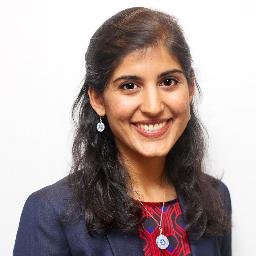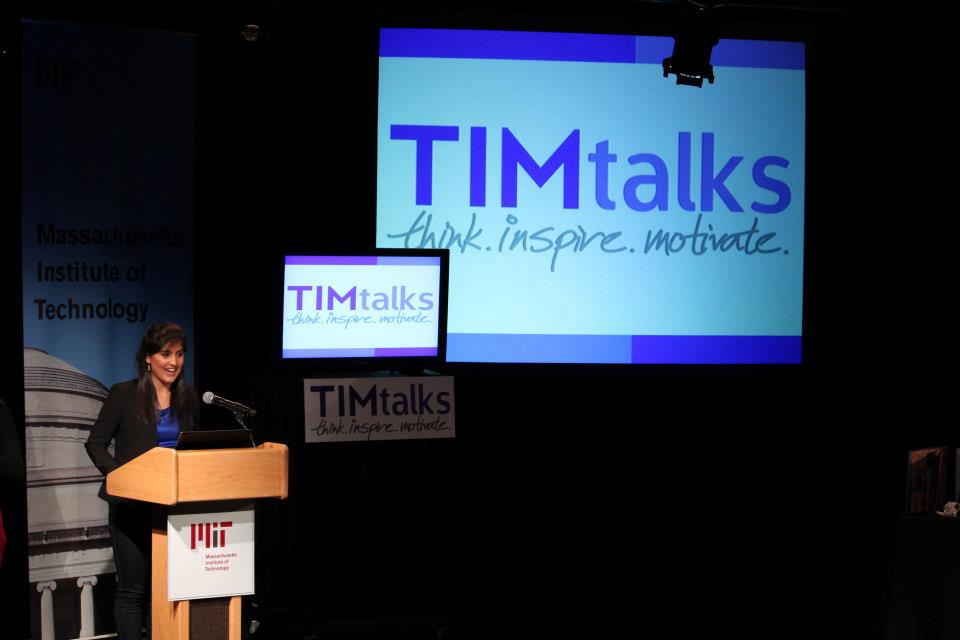Resident Interview: Anjali Thakkar, MD
A Conversation with Anjali Thakkar, Resident Physician in the Department of Medicine

What does your name, Anjali, mean? Tell me about your family and upbringing.
Anjali means "an offering to God" in Sanskrit. I was born and raised in San Jose, and it's amazing to be back home after almost ten years on the East Coast, particularly since I'm very close to my family. My parents were born in Mumbai and moved to the United States in the late '70s. Theirs is the typical immigrant story—both grew up in very humble circumstances. My father's father was an orphan and grew up hawking various odds and ends on street corners. Over time, he started a business selling imitation jewelry; he was a good businessman and made money by working incredibly hard, and was able to put my father through school. My mother is one of four daughters who grew up in a small home of 200 square feet in Mumbai, but for her father that was quite an upgrade from the small village he grew up in. My parents definitely adopted their parents' work ethic. When my parents, who are both engineers, moved here, they started their own company so I spent a lot of my childhood in their office and saw how hard they worked. I think a lot about the privilege that I've had of having parents who valued education and pushed me beyond my comfort zone by the example of their being so self-driven.
Your reputation as a stellar academic is impressive. Who or what inspired such idealism and drive?
My mother constantly reminds me that life is a journey. Mine is different than anyone else's, so I shouldn't waste time comparing myself, and should spend my energy instead on goals bigger than myself and bigger than material wealth. At MIT, I studied materials engineering and biology, and also became involved with the MIT Public Service Center. One summer, I traveled to a small community in Mexico where I worked with women to teach basic skills in microbusiness. I stayed with a wonderful host family whose artisan craft was shoemaking. Halfway through the program, my host mother and her family had to drop out of the program to travel to a bigger city for medical care. It was then that I realized that access to healthcare was a major barrier to growth. This inspired me towards a career in medicine.
Is exceptional discipline an innate ability? How did you structure your time at MIT and earn simultaneous medical and business degrees at Harvard?

I don't think discipline is innate. For me, it's more "inspired." I thank my parents, whose favorite thing to tell me is to "stay laser focused on your goals." I also admire my husband, a radiology resident here at UCSF, who truly has unending curiosity to learn—this motivates me.
My first year at MIT, I felt hardcore "imposter syndrome," and would frequently call my parents crying about feeling inadequate, that I didn't belong, etc. I realized that my experience wasn't unique, and during my senior year, I started a program called TIMtalks to encourage students to share stories of failure. Ultimately, MIT was a hugely formative experience where I started to understand what I could achieve and how hard I could work. It really solidified a "can do" attitude in me. I'm so grateful for that experience.
In terms of my time at Harvard, I joined business school after my third year of medical school, and the two worlds couldn't have been more different. I found myself frequently challenged to stand up for my values. In doing this, I understood what my values were and learned to argue in a rational and data-driven manner when necessary. I also came away with a different way of looking at problems, and I believe that if we used more business principles in medicine, we could make healthcare more accessible, more equitable, and more efficient.
You've no doubt had incredible mentors. What is the common thread of wisdom that particularly resonated with you?
I am drawn to mentors who stick to their values when it really matters, even when it goes against the grain. I don't mean people who are stuck or set in their ways – we should all be malleable and adaptable in some things. I mean people whose actions follow their values because they know what is important to them. I also admire mentors who want what's best for you, not what's best for them, and who will go to bat for you. In fact, I am grateful to my current research and career mentor, Dr. Priscilla Hsue, who I hope to be like someday!
What in your own experience do you try to communicate to medical students?
Last year during Morning Report, I'd quietly say the answers to myself until our Program Director, Dr. Rebecca Berman, pointed out that I would whisper the right answers but it was the people who answered aloud who got the credit. She correctly noted that I needed to speak up. After that, I made myself sit up front at M&M, speak up, and be okay with sometimes answering incorrectly. I've shared this story with med students and interns because talking about these common experiences can help everyone grow.
Another strategy that I try to live by and share is one I learned in business school; "grow the pie." If you view others as collaborators instead of as competitors, you can change the problem you're solving. You may just end up with a bigger pie to share, instead of just a bigger piece of a smaller pie. One final idea that I strive to communicate is that your actions should follow your words. This has been particularly helpful when there are interpersonal issues that arise on teams.
In whose shoes would you be willing to walk to better understand that person's journey and decisions?
My research is focused on understanding heart failure outcomes in vulnerable populations, including individuals with HIV and methamphetamine use disorder. We see these patients very frequently when we rotate at ZSFG—in fact, the first time I experienced burnout in residency was the day I discharged four homeless individuals with substance use disorder to the streets in the pouring rain. I couldn't help but wonder what their lives would be like in the next ten minutes. It was overwhelming. These experiences have made me think a lot about the complex socioeconomic and mental health barriers that exist for many of these patients. At risk of sounding cliché, I wonder what life in their shoes is like, what their motivations are, what cycle of events lead to them becoming hospitalized, what role substance use plays, and the list goes on. I ask these questions to my patients when I am able to, and read about these topics in the medical literature, but none of this can make me truly understand life in their shoes. I believe that one of the biggest healthcare challenges we face today is the implementation of therapies and technologies for underserved communities. For example, I don't think we need the next new heart failure magic drug—we have therapies that work, and yet so many patients aren't able to access them. Solving this problem will require actually understanding these patients' lives.
What is a contradiction of your personality? Do you have an alter ego and what does she like?

I am cheerful and bubbly, and while with my team on service, I am surprisingly laid back and don't micro-manage. But when I am alone, I have lists upon lists of Excel spreadsheets and I check and double-check everything I do. I come across as confident, which I am, but have a healthy dose of self-doubt – which I'm grateful for because it drives me to work harder. My alter ego loves classical music—my music taste is heavily influenced by my husband who is talented at classical Indian violin and jazz trombone. I also grew up learning and performing Bharatanatyam, which is a form of South Indian classical dance. I last performed in August with my dance company, the Abhinaya Dance Company.
What is your fashion equivalent of comfort food?
Wearing my husband's oversized t-shirts and sweatpants.
Thank you, Anjali.